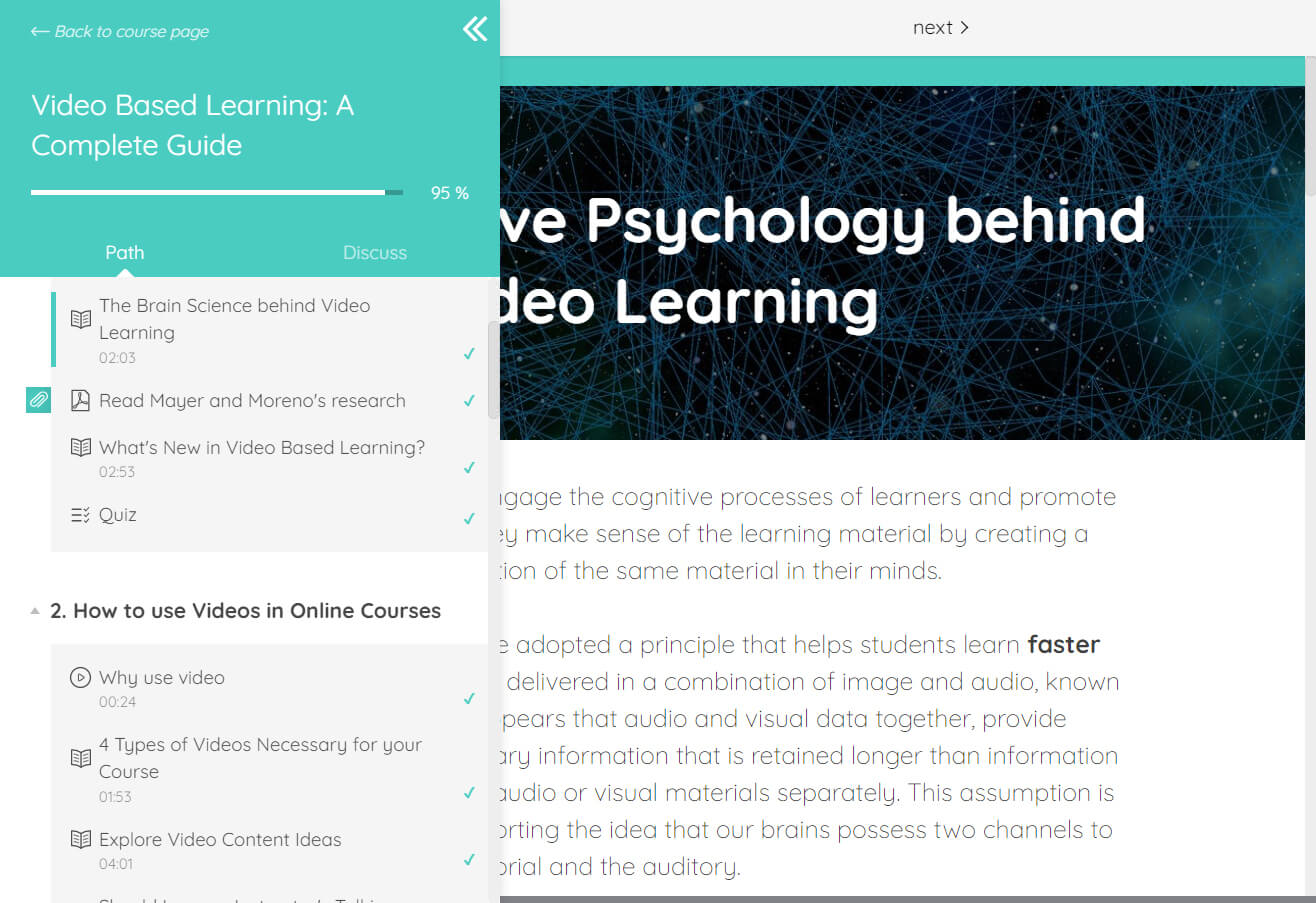

With so many things going on at home and at work, taking on another task is just something that needs an explanation. Even though the benefits of learning in the workplace may be self-evident, providing a good answer to “what’s in it for me” can be all the internal motivation one needs to continue taking your course. Millennials consistently rate opportunities to learn new skills as a top benefit in their employment and list a lack of training as a reason to start searching for a new job. Millennials currently make up over 50% of the workforce and will make up 75% of the workforce by 2025. This is especially true with millennials in the workplace. If you provide them real value, then you can be sure they’ll sign up for the next course.Īdults are better at self-motivation than adolescents. Offer instruction that relates to real-world examples that will enable your learners to apply your lessons immediately to their job. You’ll need to sell your course with an enriching experience. With adults, it can be a bit more tricky. Kids are motivated to succeed at the promise of approval or the fear of disapproval. With kids, you can light the fire with rewards or discipline. For this post, we’ll explore seven adult learning principles that draw on the unique qualities of adults to reflect, analyze, comprehend, organize, and synthesize knowledge.Īdults have to want to learn to make learning sustainable. Rather than draw a line of distinction between the two, adult learning principles or learning principles, in general, maybe better thought of on a spectrum rather than partitioned between child and adult. Whether there is such a distinction between childhood learning and adult learning can be a source of debate.

Here we will refer to adult learning within the workplace as opposed to, say, adult education for a hobby or for learning’s sake. Where children typically require direction in the form of a teacher and curriculum, adults typically prefer to direct themselves and have more say in their learning path.īroadly speaking, andragogy refers to the principles and methods of adult education. The differences largely depend on the differences between a child and an adult. Andragogy, a term popularized by Malcolm Knowles in 1967 in the US, is an adult learning theory that distinguishes itself from pedagogy.


 0 kommentar(er)
0 kommentar(er)
